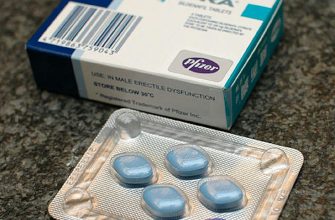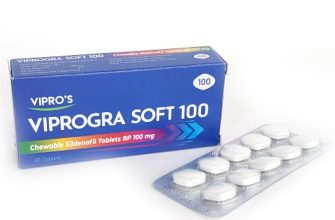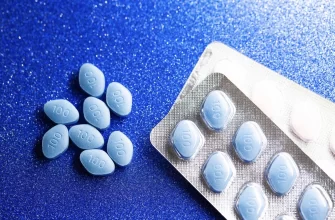The lowest effective dose of Wellbutrin (bupropion) typically starts at 75mg once daily. Your doctor will carefully consider your individual needs and medical history before prescribing any medication, so this should only serve as a starting point for your own research and discussion with a healthcare professional. Remember, individual responses to medication vary.
Increasing the dosage is usually done gradually, often to 150mg once daily after a period of adjustment. Your doctor will monitor your progress and adjust the dosage accordingly, aiming for the lowest dose that effectively manages your symptoms. This tailored approach minimizes potential side effects.
Important Note: Never adjust your Wellbutrin dosage without consulting your physician. Sudden changes can negatively impact your health. Open communication with your doctor is vital for determining the optimal treatment plan and ensuring your safety and well-being throughout the process.
This information is for educational purposes only and does not constitute medical advice. Always consult with your healthcare provider before starting, stopping, or altering any medication.
- Lowest Dose of Wellbutrin: A Comprehensive Guide
- Factors Influencing Starting Dose
- Wellbutrin Dosage Increase
- Wellbutrin Dosage Table
- Important Note:
- Starting Dose and Titration for Depression
- Adjusting Your Dose
- Important Considerations
- Initial Dosage for Smoking Cessation
- Adjusting Dosage Based on Individual Response
- Potential Side Effects at Low Doses
- Interactions with Other Medications at Low Doses
- When to Contact Your Doctor Regarding Dosage
Lowest Dose of Wellbutrin: A Comprehensive Guide
The lowest dose of Wellbutrin (bupropion) is typically 75 mg, usually taken once daily. Your doctor might start you at a lower dose, even as low as 37.5 mg, especially if you have liver or kidney issues or are particularly sensitive to medications. This initial dose is often increased gradually.
Factors Influencing Starting Dose
Several factors determine your starting dose. Age, overall health, other medications you’re taking, and the specific reason for prescribing Wellbutrin (depression, smoking cessation, or seasonal affective disorder) all play a role. Open communication with your physician is key to determining the right starting point for you.
Wellbutrin Dosage Increase
After a few weeks, your doctor will assess your response to the medication. They may then increase your dosage gradually to find the most effective dose for you. Common increases involve doubling the initial daily dose, or splitting a higher dose into two or more daily administrations. The maximum daily dose is generally 450 mg, but this is only reached after careful monitoring and should not be considered a target for everyone.
Wellbutrin Dosage Table
| Dosage (mg) | Frequency | Typical Administration |
|---|---|---|
| 37.5 | Once daily | Starting dose for sensitive individuals |
| 75 | Once daily | Common starting dose |
| 100 | Once daily or twice daily (50mg each) | Common dose increase |
| 150 | Once daily or twice daily (75mg each) | Higher dose |
| 300 | Once daily or twice daily (150mg each) | Higher dose |
| 450 | Twice daily (225mg each) | Maximum dose, requires careful monitoring |
Important Note:
This information is for educational purposes only and does not constitute medical advice. Always consult your doctor or other qualified healthcare professional for personalized recommendations regarding medication dosage and treatment plans. Never adjust your medication without your doctor’s guidance.
Starting Dose and Titration for Depression
The typical starting dose of Wellbutrin for depression is 150mg once daily. Many people find this dose sufficient. However, your doctor may choose to start you at a lower dose, particularly if you have other health conditions or are taking other medications. This is to monitor for side effects and find the optimal dose for you.
Adjusting Your Dose
Your doctor will likely monitor your response to the medication and adjust the dose based on your symptoms. A common titration schedule involves increasing the dose to 300mg daily, usually split into two 150mg doses. This is generally done after several weeks, depending on how you are responding to the initial dose and tolerating potential side effects. Further increases may be considered, up to a maximum of 450mg per day, but this is less common.
Important Considerations
Individual responses to Wellbutrin vary greatly. Factors such as age, weight, metabolism, and other medical conditions influence the appropriate dosage. It’s crucial to have regular check-ups with your doctor to evaluate your progress and make any necessary dose adjustments. Never adjust your dosage without your doctor’s guidance. Open communication with your doctor regarding any side effects or lack of improvement is key to effective treatment.
Initial Dosage for Smoking Cessation
For smoking cessation, Wellbutrin typically starts at 150mg once daily. This is often increased to 150mg twice daily after a few days, depending on individual tolerance and response. Your doctor will monitor your progress and adjust the dosage accordingly. Some individuals may experience side effects at lower dosages, and others may require a higher dose for optimal results.
Increases in dosage are usually gradual, allowing your body to adapt. Closely follow your doctor’s instructions, and report any unusual side effects immediately. Regular check-ups are vital to ensure the treatment plan is effective and safe for you.
Remember, successful smoking cessation involves a multi-pronged approach that frequently includes counseling and behavioral therapy alongside medication. This combined strategy usually provides the best chance of long-term success.
Adjusting Dosage Based on Individual Response
Begin with the lowest recommended dose of Wellbutrin, usually 75mg daily. Monitor your response closely for at least four weeks. This allows sufficient time to observe any noticeable improvement in symptoms.
If you experience minimal or no improvement after four weeks at 75mg, your doctor might increase the dose to 150mg daily, typically taken in two divided doses (75mg twice daily). Again, monitor your progress for at least another four weeks.
A further increase to 300mg daily (150mg twice daily) might be considered if symptoms remain unsatisfactory. This is the maximum recommended daily dose for many individuals. Dosage adjustments are always made under medical supervision.
Increased side effects, like insomnia, nausea, or headache, may necessitate a dosage reduction. Report these to your doctor immediately. They will help adjust your medication accordingly to find the best balance between symptom improvement and side effect management.
Individual responses to Wellbutrin vary significantly. What works for one person may not work for another. Open communication with your doctor is key to finding the optimal dose for you, ensuring your safety and maximizing therapeutic benefits.
Potential Side Effects at Low Doses
While Wellbutrin is generally well-tolerated, even at low doses, some individuals experience side effects. These can include nausea, dry mouth, constipation, headache, and insomnia. The frequency and severity vary significantly between individuals.
Nausea often improves as your body adjusts to the medication. Staying well-hydrated and consuming smaller, more frequent meals can help. Dry mouth can be managed with sugar-free gum or candies, and plenty of water.
Constipation may respond to increased water intake and fiber in your diet. If these measures are insufficient, consult your physician. Headaches are common, but usually mild and transient. Over-the-counter pain relievers can provide relief. If headaches are severe or persistent, seek medical attention.
Insomnia, another potential side effect, might require adjusting the time you take your medication. Taking it earlier in the day may help avoid disruptions to your sleep cycle. Remember to report any significant or persistent side effects to your doctor promptly.
It’s crucial to note that individual responses to Wellbutrin vary. What one person experiences, another might not. Open communication with your prescribing physician is paramount to managing any side effects effectively.
Interactions with Other Medications at Low Doses
Always inform your doctor about all medications, supplements, and herbal remedies you take, even over-the-counter drugs. Low doses of Wellbutrin still interact with other substances.
Specific interactions to be aware of include:
- MAO Inhibitors: Combining Wellbutrin with MAO inhibitors can cause a dangerous increase in blood pressure. A significant time gap (often several weeks) is needed between stopping an MAOI and starting Wellbutrin, and vice versa. Your doctor will guide you on this.
- Seizure Medications: Wellbutrin lowers the seizure threshold. If you’re on other medications that also lower this threshold, your doctor may need to adjust dosages or choose alternative treatments. This is particularly important at low doses, where the margin for error is smaller.
- Certain Antidepressants: Interactions with other antidepressants are possible and may necessitate careful monitoring and dosage adjustments. Discuss any other antidepressants you are taking with your healthcare provider.
- Nicotine: While Wellbutrin is sometimes used to aid smoking cessation, the combination of nicotine and Wellbutrin can impact its effectiveness and increase side effects. Discuss this with your doctor.
This list isn’t exhaustive. Many other drugs may interact with Wellbutrin, even at low doses. Always consult your doctor or pharmacist before starting any new medication while taking Wellbutrin.
- Detailed Medication History: Provide a complete list of your current medications to your physician before starting Wellbutrin.
- Regular Monitoring: Schedule regular check-ups with your doctor to monitor your response to Wellbutrin and to address any potential interactions or side effects.
- Open Communication: Report any new or worsening symptoms to your healthcare provider immediately.
Proactive communication with your healthcare team is key to safely managing potential drug interactions, even with low doses of Wellbutrin.
When to Contact Your Doctor Regarding Dosage
Contact your doctor immediately if you experience any of the following:
- Severe nausea or vomiting that prevents you from keeping down food or water.
- Significant changes in your mood, including increased anxiety, agitation, or irritability.
- Difficulty sleeping or insomnia that significantly impacts your daily life.
- Racing thoughts or feelings of restlessness.
- Thoughts of self-harm or suicide.
- Seizures.
- Rapid heartbeat or palpitations.
- High blood pressure.
- Changes in appetite leading to significant weight loss or gain.
- Allergic reactions such as skin rash, itching, or swelling.
Schedule a follow-up appointment with your doctor if:
- Your symptoms don’t improve after several weeks of treatment at the current dose. Allow at least 4-6 weeks for the medication to take full effect before considering a dosage adjustment.
- Your symptoms are only partially improved, and you believe a higher dose may be necessary, but you are hesitant to increase it on your own.
- You experience any new or worsening side effects, even if they seem minor.
- You have any questions or concerns about your medication or its effects.
Regular communication with your doctor is key to managing your Wellbutrin treatment effectively and safely. Don’t hesitate to reach out with any questions or concerns.









